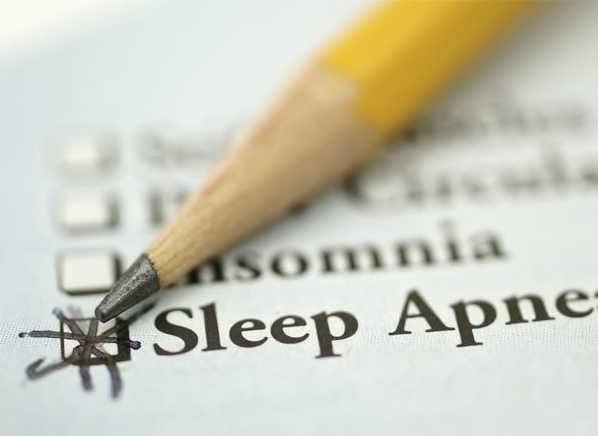Sign In

Menu
Suggested Searches
Recent Searches
Suggested Searches
Product Ratings
Resources
Chat With AskCR
Resources
All Products A-ZThe payment for your account couldn't be processed or you've canceled your account with us.
Re-activateMy account
Sign In
My account
Sign In


Q. Does the fact that I snore mean I have sleep apnea?
A. While snoring is one of the signs of sleep apnea, it doesn't always indicate someone has the condition.
About 90 million Americans snore at least some of the time. But only half may have obstructive sleep apnea (OSA)—when relaxed, flabby throat tissue blocks your airway during sleep. Sleep apnea sn't just noisy; it raises your risk for high blood pressure, heart attacks, stroke, and type 2 diabetes. And because it leaves you fatigued, it also increases the odds of car accidents and attention problems.
Loud snoring accompanied by pauses in breathing and by gasps or choking as you breathe again are warning signs your bed partner may notice. No partner? Experts suggest you talk with your doctor if you snore and have three or more of these red flags for apnea: being overweight, older than 50; or male; having a neck circumference over 17 inches for men or 16 inches for women; and constantly feeling tired during the day.
If you're diagnosed with mild sleep apnea, the first treatment to try is making lifestyle changes. Shedding excess pounds may help, as can avoiding alcohol, cigarettes, and sedatives. Another change to implement is sleeping on your side, which may keep your airways open. Read more about how to control sleep apnea.
For moderate and severe cases of sleep apnea, the most effective treatment is continuous positive airway pressure (CPAP), in which a mask connected to a pump blows air into your throat to keep the airway open. An alternative is a mouthpiece that pushes the lower jaw forward. Unfortunately, both CPAP and the mouthpiece can be hard to get used to. Throat surgery is usually an option of last resort, because its effectiveness is uncertain and often short-lived.
A version of this article also appeared in the January 2015 issue of Consumer Reports on Health.
 Build & Buy Car Buying Service
Build & Buy Car Buying Service
Save thousands off MSRP with upfront dealer pricing information and a transparent car buying experience.
 Get Ratings on the go and compare
Get Ratings on the go and compare
while you shop